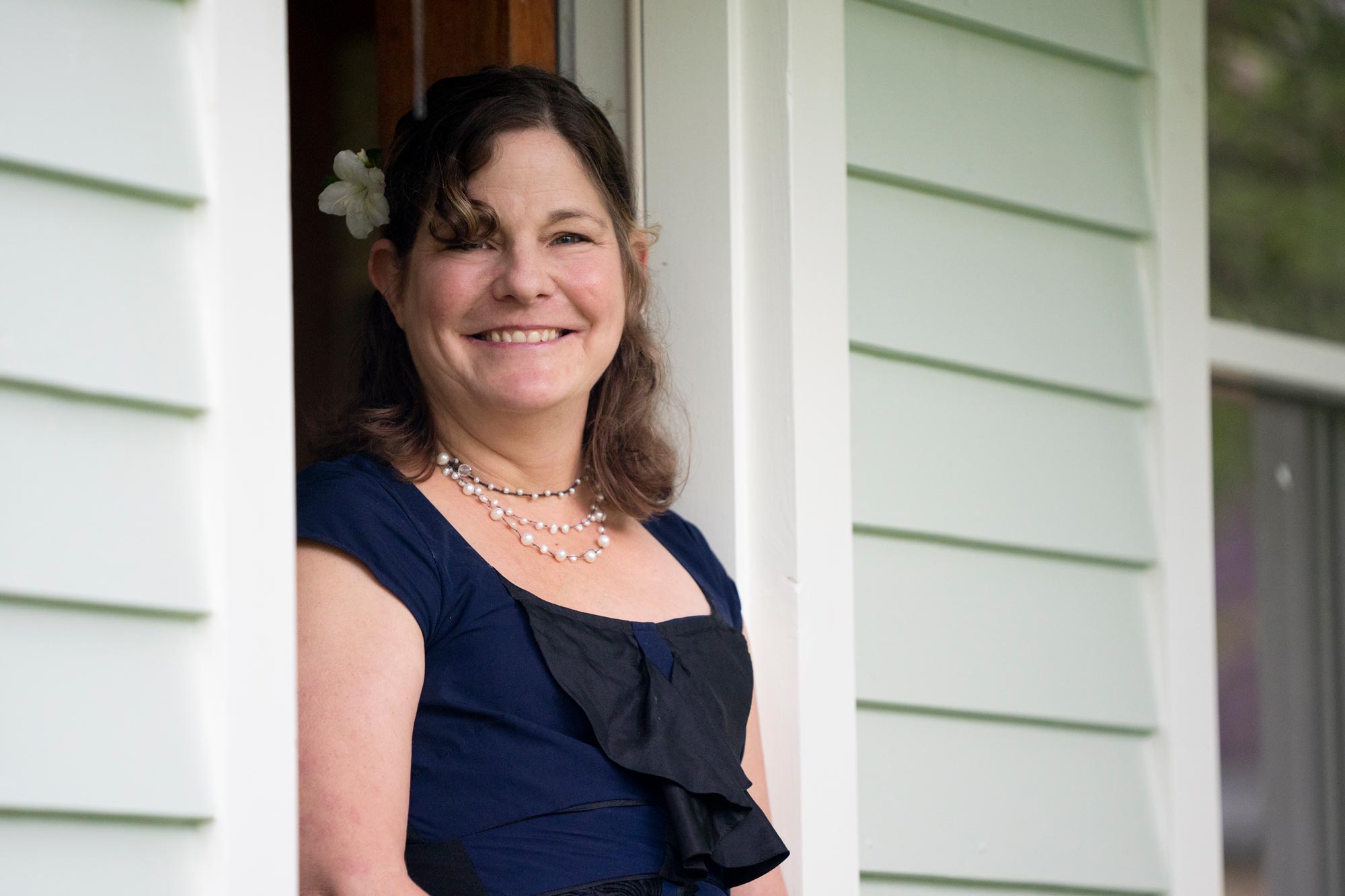Find the latest information on the University’s response to the coronavirus here.
Writing a good memoir requires time to reflect, to translate memories and experiences into narrative. Along with the hardships and struggles the global pandemic has brought to every corner of the world, it may have also supplied some writers with that time and isolation.
“This time of quarantine can be an opportunity to delve into our own histories, to excavate what moments carry significance for us and for those who might read our stories,” said Charlotte Matthews, a professor in the University of Virginia’s School of Continuing and Professional Studies, who has both taught memoir writing and recently published her own, “Comes With Furniture and People.”
The book recounts her life events, from her mother’s depression and illness to Matthews’ experiences with breast cancer and life as a single mother. The memories collected cover Matthews’ experiences growing up in the nation’s capital, including sleepovers with Amy Carter, and are presented as a collection, rather than as one long continuous story – a hallmark of memoir versus an autobiography.
Matthews brought her passion for the form to her virtual classroom, working recently with her students in the Bachelor of Interdisciplinary Studies program – an online degree completion program for working adults – helping them to develop their own approach to memoir writing.
Roneil Jackson took her course in the fall of 2019, his first semester back in the classroom after six years away from college. The experience, he said, helped him acclimate to both online classes and to being back in an academic setting.
“I believe Professor Matthews facilitated a great classroom,” he said. “We’d start the class off with meditation every day, and we had to write in our journals every class. That really opened me up. Finding the time to just write, especially in this day and age, was really helpful. It allowed me to think differently about a lot of stuff, which made me more confident in my writing, more confident speaking in class, and more confident in breakout sessions with my fellow classmates.”
On Friday at 5:30 p.m. EDT, Matthews and some of her current students and recent graduates will participate in “Wonder of All Wonders: The Written Word,” reading their own works and celebrating the written word. Register online or tune in via the School of Continuing and Professional Studies Facebook page to watch a livestream.
Matthews also recently answered some questions about memoir as a creative format and whether quarantine is a good time to start one.
Q. What advice do you have for someone who wants to write a memoir during these times of social distancing?
A. It is a fitting time, as we are spending more time with ourselves. This is valuable as it is untarnished time, spacious and vast, and therefore conducive to inward thought and reflection. The poet Stanley Kunitz posited that “poetry is the guardian of human dignity and significance,” and I tend to think that memoir can be as well.
Q. How did you decide to write “Comes With Furniture and People,” and how did the process of writing a memoir differ from your previous work?
A. I had been carrying around the stories that compose the memoir for so many years, and they were getting heavy. I recognized that it was time to put them down – in writing. My hope was/is that they might resonate with others. While the details of our lives may vary, the shape of those histories often correlate in a way that can heal and make sense. Growing up with a mother whose love was remote is not a rarity. I have had many readers share that their childhoods felt uncannily like mine. Before writing this memoir, I wrote poems, which, for me, has a more compact energy, a flash. Whereas this memoir holds more sustained heat.
Q. What was it like working with students on their own memoir projects, having undertaken a similar project yourself?
A. Having trudged through the sometimes-treacherous waters of writing my own memoir, I was able to recognize that the process can be baffling, even formidable. With that understanding, I was able to appreciate my students’ own struggles and triumphs. Yeats taught us that out of our quarrel with others, we make rhetoric; out of our quarrel with ourselves (which is part of writing a memoir), we make poetry.
Q. Could we look back from the future and find that 2020 was a golden age of memoirs?
A. Oh, I hope so. The memoir genre had been making a fierce comeback even before the pandemic, so I hope dearly that we get to experience many others coming out of these times.
Q. Your students have done some incredible work. What can we expect from them and from you during the upcoming reading on Zoom?
A. Two alumnae and three current BIS students will be readers/moderators at this Friday’s “Celebration of Words.” You can expect to be moved, to be invigorated and to be transported.
Media Contact
Article Information
May 7, 2020
/content/qa-power-memoir-time-coronavirus

